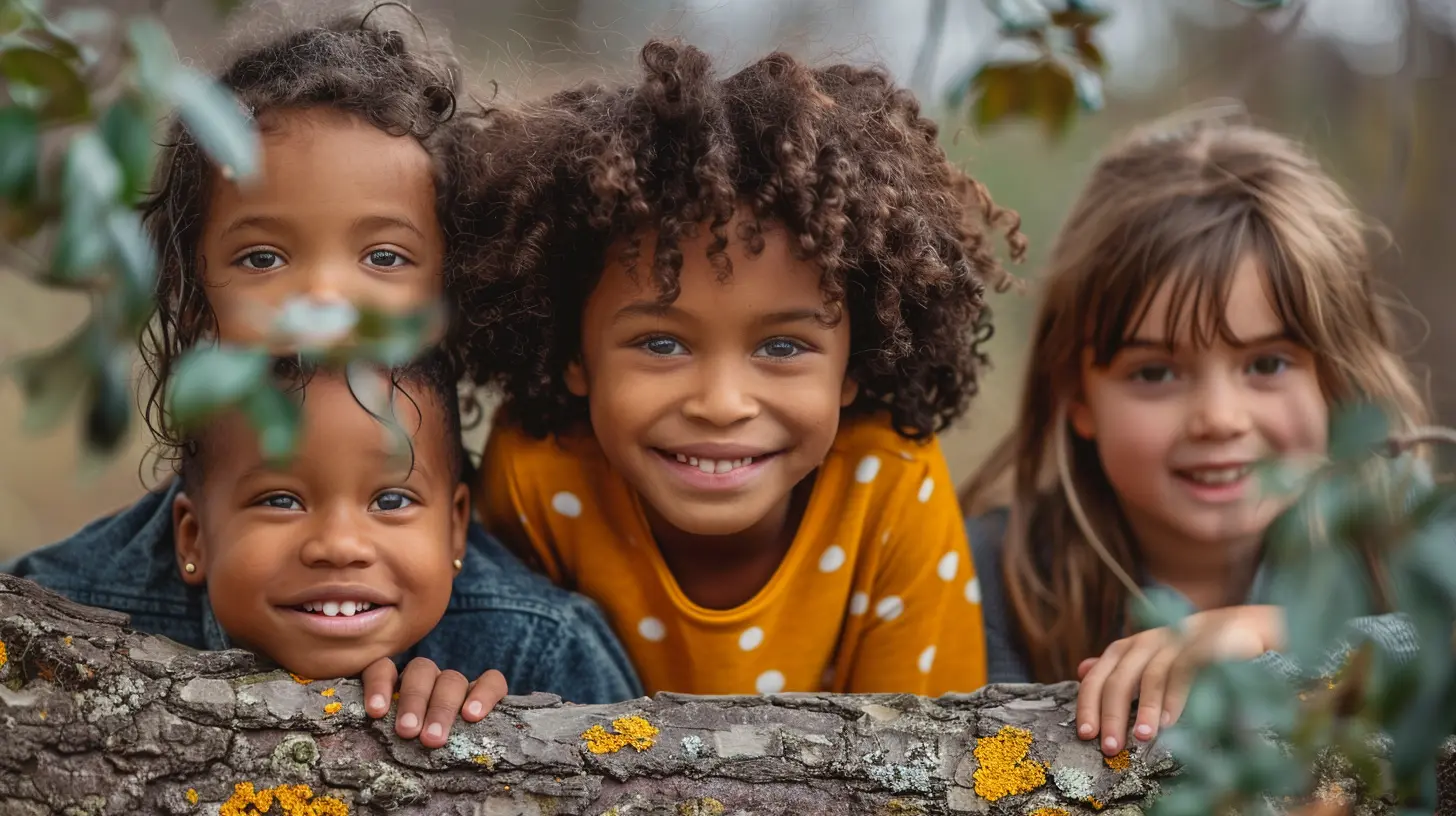Adoption and Identity: How to Help Your Child Understand Their Roots
26 May 2025
Adoption is a beautiful way to build a family, but it also comes with unique challenges—especially when it comes to identity. Every child deserves to know where they come from, and as a parent, you play a crucial role in helping them understand their roots.
But how do you navigate those tough conversations? What if your child starts asking difficult questions? How can you ensure they feel loved, secure, and proud of their story?
Let’s dive into the emotional and practical aspects of helping your adopted child embrace their identity with confidence. 
Understanding the Importance of Identity in Adoption
Every child, adopted or not, eventually asks, “Who am I?” For adopted children, this question often carries a deeper meaning. They may wonder about their biological family, their cultural heritage, or why they were placed for adoption.Identity is more than just a name or a family tree—it shapes how children see themselves and where they fit in the world. When children lack information about their past, they may struggle with feelings of loss, confusion, or even rejection.
Helping your child understand their roots isn’t just about giving them facts—it’s about creating a sense of belonging and security. 
When Should You Start the Conversation?
The short answer? As early as possible.Children are naturally curious, and adoption should never be a “big reveal” when they’re older. Instead, it should be a natural part of their story from the beginning.
Even toddlers can grasp simple concepts about adoption. You can start by saying things like:
> “You grew in another mommy’s tummy, but she couldn’t take care of a baby at that time. So, she made a really loving choice to find a family who could. And that’s how we became your parents!”
As your child grows, their questions will become more complex, and that’s okay! The key is to always keep the conversation open, honest, and age-appropriate. 
Honesty is the Best Policy
Many adoptive parents worry about sharing difficult details. Maybe there’s trauma in the biological family’s past, or perhaps the circumstances of the adoption weren’t ideal. Should you tell your child everything?Yes—but in a way that’s appropriate for their age and emotional maturity.
Hiding the truth can create distrust and confusion. If they later find out something you chose to withhold, they might feel betrayed. Instead, offer truthful but gentle explanations.
For example:
- A young child might be told, “Your birth parents couldn’t take care of a baby.”
- A teenager might need a deeper discussion about financial struggles, addiction, or other factors.
Remind them that no matter what happened before, they are deeply loved and valued. 
Encouraging Questions Without Pressure
Some kids ask a lot of questions about their birth families. Others might not seem interested at all. Both responses are normal.Your job isn’t to force the conversation but to make sure they know they’re always welcome to ask. A simple, “If you ever want to talk about your adoption, I’m here for you,” can go a long way.
Also, be ready for questions to come up in unexpected moments—during bedtime, car rides, or even out of nowhere at the dinner table. Never brush them off. If you don’t have an answer, it’s okay to say, “I don’t know, but I can try to find out.”
Helping Your Child Feel Connected to Their Roots
Understanding their heritage is crucial for an adopted child’s sense of identity. Here’s how you can help them stay connected:1. Create a Lifebook
A lifebook is like a scrapbook of your child’s adoption journey. It can include:- Photos of their biological family (if available)
- Details about their birthplace
- Adoption day memories
- Stories about their first days with you
This helps children visualize their past in a positive, affirming way.
2. Celebrate Their Culture
If your child was adopted from a different cultural background, embrace it! Cook traditional meals, learn about holidays, or even take language lessons together.Showing respect for their heritage teaches them that their background is something to be proud of—not something to hide.
3. Stay Connected (If Possible)
If open adoption is an option, maintaining a relationship with biological parents, siblings, or extended family can provide valuable clarity and emotional support.Even if direct contact isn’t possible, small gestures—like sending letters or keeping updated photos—can help bridge the gaps in their story.
Handling Emotional Struggles
At some point, your child might struggle with feelings of loss or rejection. That’s completely normal.Your role is to validate their emotions. Saying things like, “I understand why you might feel that way” goes much further than “But we love you, so it doesn’t matter.”
Encourage them to talk about their feelings, write in a journal, or even see a therapist who specializes in adoption-related issues.
What matters most is that they know it’s okay to feel sad or confused sometimes—and that they don’t have to go through it alone.
Supporting Their Journey into Adulthood
As adopted children grow into teenagers and young adults, their questions may become even more complex.They might wonder:
- “Do I look like my birth parents?”
- “Will I develop the same tendencies or illnesses as them?”
- “Should I search for them?”
These are difficult but important discussions. Some young adults may want to seek out their birth families, and that can bring a mix of emotions for both them and you.
If they choose to search for their biological family, support them. This is about their identity, not a reflection of your love. Remind them that no matter where their search leads, your bond remains unshaken.
Final Thoughts
Adoption is a lifelong journey—not just a one-time event. Helping your child understand their roots isn’t about giving them all the answers but about walking alongside them as they discover who they are.By keeping the conversation open, supporting their emotions, and celebrating their identity, you’re giving them the greatest gift possible—the confidence to embrace their full story.
Because in the end, identity isn't just about where you come from—it's about knowing you are loved exactly as you are.
all images in this post were generated using AI tools
Category:
AdoptionAuthor:

Steven McLain
Discussion
rate this article
3 comments
Myles Bell
Embrace every question! Exploring roots together makes for a beautiful journey of discovery.
June 2, 2025 at 3:21 AM

Steven McLain
Thank you! I completely agree—embracing questions is essential for fostering understanding and connection in the journey of identity and roots.
Nala Ross
Oh sure, because unraveling complex identity issues is a cakewalk. Just sprinkle a little fairy dust and voilà—everyone understands their roots! Parenting is a breeze, right?
May 31, 2025 at 2:42 AM

Steven McLain
I appreciate your perspective! Navigating identity can be challenging, but open conversations and support can make a significant difference in helping children understand their roots.
Blair McConnell
Roots are like socks: sometimes mismatched, but always cozy!
May 29, 2025 at 3:24 PM

Steven McLain
That's a beautiful analogy! Embracing our roots, even when they're unique, can create a warm sense of belonging. Thank you for sharing!



